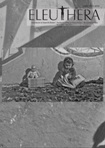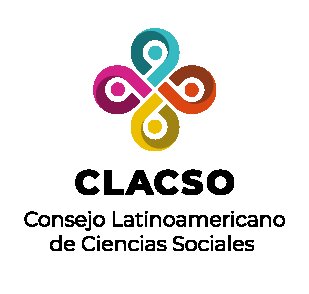Authors
Abstract
Abstract:In this article we will do an approximation to the bourgeois thought in its transition from the revolutionary thought, which inspired and provided theoretical elements for the overcoming of the feudal order, towards a conservative thought of the new capitalist social order, emphasizing the fragmentation of the so-called Social Sciences, the limits of the epistemological debate (“epistemologist”), and how it has appeared in Social Work. Also we will portray the principal features of the so-called postmodern thought, which ends up by serving as ideology of capitalism in the contemporary world, either from the celebration and defense of this society, or from a limited opposition that does not attack the root of this order’s contradictions. This study is based on a perspective in the Marxist tradition which is proposed as an alternative for the analysis and as a theoretical-methodological foundation for the renovation of Social Work and the Social Sciences in Colombia and Latin America in the way of overcoming the bourgeois thought and the postmodern offensive.
References
Coutinho, Carlos N. -Posfácio de José Paulo Netto- (2010). O estruturalismo e a Miséria da Razão. São Paulo: Expressão Popular
________________ (1994). Marxismo e Política. São Paulo: Cortez.
Harvey, David (1990). La condición de la posmodernidad. Buenos Aires: Amorrortu. Jameson, Fredric (1997). Pós-modernismo. São Paulo: Ática.
Leher, Roberto (2004). “Reforma universitária do governo lula: retorno do protagonismo do banco mundial e das lutas antineoliberais”. [En linea]:
Lukács, György (2009). O jovem marx e outros escritos de filosofia. Rio de Janeiro: UFRJ.
______________ (2010). Marxismo e teoria da literatura. Rio de Janeiro: Expressão Popular.
Marx, Karl (2007). Contribuição à crítica da economia política. São Paulo: Expressão popular
__________ (2009). Manuscritos econômico-filosóficos. São Paulo: Boitempo.
__________ e Engels, Friedrich (2010). A ideologia alemã. São Paulo: Expressão popular.
Morin, Edgar (1994). “Epistemología de la complejidad”. En: Nuevos paradigmas, cultura y subjetividad. Barcelona: Paidós.
_____________ (2007). Introdução ao pensamento complejo. Porto Alegre: Salina.
_____________ (2010). A favor e encontra de Marx. Buenos Aires: Nueva Visión.
_____________ (2010). Para onde vai o mundo. Petrópolis: Vozes.
Netto, José P. (1996). “Transformações societárias e Serviço Social” em: Serviço Social e Sociedade # 50. São Paulo. Cortez.
_____________ (2004). Marxismo impenitente. São Paulo: Cortez.
_____________ (2007). Crise do Socialismo e Ofensiva Neoliberal. São Paulo: Cortez.
Rodrigues, Mavi (2006). Michel Foucault sem espelhos. Tesis de doctorado. Escuela de Servicio Social. Universidad Federal de Río de Janeiro. (http://teses.ufrj.br/ESS_D/MaviRodrigues.pdf) Brasil.
Rouanet, Sergio (1987). As razões do iluminismo. São Paulo: Cia. das letras.
Tapiro, Juan Pablo S. y Villegas C. Sindy L. (2009). Tendencias en la formación profesional en Trabajo Social – El caso de la Universidad del Valle. Trabajo de grado. Escuela de Trabajo Social. Universidad del Valle. Colombia.

 PDF (Español)
PDF (Español)
 FLIP
FLIP

























